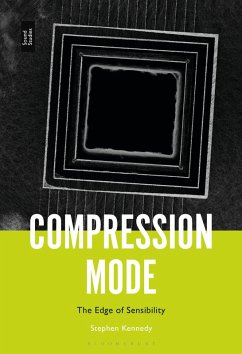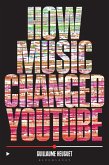This book examines how compression can be understood not only as a digital process enacted through computing, but as a wider economic and political phenomenon that impacts on the ecology of waste, diversity and social inclusivity.
Setting out from the linguistic underpinning of visual space it proceeds to the development of the MP3 algorithm and an examination of the 'waste' it creates. As it does so it challenges the received wisdom, prevalent in western thought, that human reason and logic enacted through language is uniquely capable of bringing order to chaos. Returning to the idea of a sonic economy it seeks to reintroduce waste, error, and other discarded material back into our systems of thought, or perhaps more accurately into systems beyond our thought.
Setting out from the linguistic underpinning of visual space it proceeds to the development of the MP3 algorithm and an examination of the 'waste' it creates. As it does so it challenges the received wisdom, prevalent in western thought, that human reason and logic enacted through language is uniquely capable of bringing order to chaos. Returning to the idea of a sonic economy it seeks to reintroduce waste, error, and other discarded material back into our systems of thought, or perhaps more accurately into systems beyond our thought.









